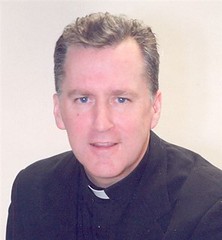SOLEMNITY OF MARY, MOTHER OF GOD
XXXVI WORLD DAY OF PEACE
HOMILY OF JOHN PAUL II
Wednesday, 1 January 2003
Brothers and Sisters,
1. "The Lord bless you and keep you.... The Lord look upon you kindly and give you peace" (Nm 6,24.26): this is the blessing that the priests of the Old Testament gave the Chosen People on the great religious feast days. Today, the ecclesial community listens to it again, while it asks the Lord to bless the new year we have just begun.
"The Lord bless you and keep you". In the face of the events that unsettle the planet, it is very clear that only God can touch the depths of the human soul; his peace alone can restore hope to humanity. We need him to turn his face towards us, to bless us, to protect us and give us his peace.
For this reason, we must begin the new year by asking him for this precious gift. Let us do so through the intercession of Mary, Mother of the "Prince of Peace".
2. At this solemn celebration I wish to address a respectful greeting to the distinguished Ambassadors of the Diplomatic Corps accredited to the Holy See. I also warmly greet my Secretary of State and the other heads of the departments of the Roman Curia, with a special greeting for the new President of the Pontifical Council for Justice and Peace. I would like to express my gratitude to the Council for their daily work to foster peaceful coexistence among the peoples, along the lines of the Messages for the World Day of Peace. This year's Message commemorates Pacem in terris on the 40th anniversary of its publication. The content of this authoritative and historical document of Pope John XXIII is a "permanent mandate" for believers and people of good will in this time burdened with tensions, and also rich with many positive expectations.
3. When Pacem in terris was written, there were menacing clouds on the horizon and the nightmare of an atomic war hung over humanity.
My venerable Predecessor, whom I had the joy of raising to the honours of the altar, was not overcome by the temptation to discouragement. On the contrary, relying on his firm confidence in God and on the capacity of the human heart, he forcefully pointed out "truth, justice, love and freedom" as the "four pillars" on which to build a lasting peace (cf. Message for World Day of Peace, 1 January 2003, n. 3).
His teaching remains timeless. Today, as then, despite the serious, repeated attacks on the peaceful, solidary harmony of peoples, peace is possible and necessary. Indeed, peace is the most precious good to ask of God and to build with every effort, by means of concrete gestures of peace on the part of every man and woman of good will (cf. ibid., n. 9).
4. The Gospel passage we have just heard takes us back in spirit to Bethlehem, where the shepherds went to adore the Child on Christmas night (cf. Lk 2,16). How can we not go in spirit with fear and sadness to visit that holy place where Jesus was born?
Bethlehem! The Holy Land! The tragic, enduring tension this Middle Eastern region lives in, makes the search for a positive solution to the fratricidal and senseless conflict which has shed blood for too long, more urgent. It requires the cooperation of all who believe in God, who know that true religious feeling far from setting individuals and peoples against one another, urges them to build together a world of peace.
In my Message for today's World Day of Peace, I wished strongly to repeat: "Religion has a vital role in fostering gestures of peace and in consolidating conditions for peace". And I added that "it exercises this role all the more effectively if it concentrates on what is proper to it: attention to God, the fostering of universal brotherhood and the spreading of a culture of human solidarity" (ibid., n. 9).
Faced with today's conflicts and the threatening tensions of the moment, once again I ask you to pray to find the "peaceful means" for a solution inspired by "a desire for genuine and constructive dialogue", in harmony with the principles of international law (cf. ibid., n. 8).
5. "God sent forth his Son, born of woman, born under the law ... so that we might receive adoption as sons" (Gal 4,4-5). In the fulness of time, St Paul recalls, God sent into the world a Saviour, born of a woman. Thus the new year opens under the sign of a woman, under the sign of a mother: Mary.
As a spiritual continuation of the Great Jubilee, whose echo has not died away, last October, I chose to proclaim the Year of the Rosary. After having vigorously presented Christ as the only Redeemer of the world, I wished to mark this year with Mary's special presence. In the Apostolic Letter Rosarium Virginis Mariae (The Rosary of the Virgin Mary), I wrote that "the Rosary is by its nature a prayer for peace, since it consists in the contemplation of Christ, the Prince of Peace, the one who is "our peace' (Eph 2,14). Anyone who assimilates the mystery of Christ - and this is clearly the goal of the Rosary - learns the secret of peace and makes it his life's project" (n. 40).
May Mary help us discover the face of Jesus, Prince of Peace. May she support and accompany us in this new year; may she obtain for us and for the whole world the desired gift of peace! So be it!
http://www.vatican.va/holy_father/john_paul_ii/homilies/2003/documents/hf_jp-ii_hom_20030101_en.html
Subscribe to:
Post Comments (Atom)

No comments:
Post a Comment